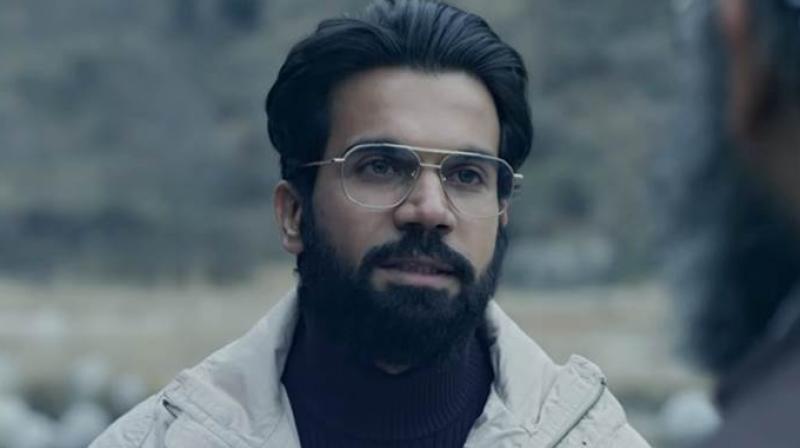Omerta movie review: Rao's taut, sharp performance adds heft to the film
Omerta is an honourable film, but it often loses track of itself as it goes off on tangents so obscure and weak.

Cast: Rajkummar Rao, Rajesh Tailang, Rupinder Nagra, Timothy Ryan Hickernell, Daljit Shawn Singh
Director: Hansal Mehta
When done well, ambiguity can be the stuff of great cinema, one that keeps its hook into us for years. And as the film’s worldview, it can be the hallmark of political maturity, the fact that it is one’s own rather than an ideological outlook borrowed from a state, a party, some people. Hansal Mehta is not lacking in ambition. And his politics is always interesting. It makes us think. But somewhere, since his laser-sharp Shahid, his grip over his own stories has been loosening. In pursuit of either a brilliant cinematic moment or a powerful message, he loses track of the story he wants to tell, and his message gets lost in his muddled telling. Omerta is an honourable film, but it often looses track of itself as it goes off on tangents so obscure and weak. If a lesser actor were carrying it, Omerta would have been insufferable. Rajkummar Rao’s taut, sharp performance shines bright and gives the film heft and personality it otherwise lacks.
Omerta opens with a dark screen and a scream. We don’t know who screamed, where. The film tells the story of British-born Ahmed Omar Saeed Sheikh (played here by Rajkummar Rao), now 44 and waiting for a response to his plea against his death sentence in Karachi Jail. It tracks his journey from LSE to kidnapping four foreigners in Delhi, getting arrested by Delhi police, being one of the three militants freed in exchange for the lives of passengers on board the hijacked IC-814 by the then BJP government, going on to kidnapping and then killing Daniel Pearl, and making crank calls to Pervez Musharraf from jail. Posing as Pranab Mukherjee during the 2008 Mumbai terror attacks, he threatened war, leading Pakistan to scramble military aircraft over Islamabad and Rawalpindi. It doesn’t get more dramatic than that.
Hansal Mehta has said in interviews that he wanted to explore and depict evil as a human characteristic, but since he is not, thankfully, a jingoistic white film director from America, his Indian lefty-liberal leanings show in his telling of this story. There is cause, and jihad is its effect. There’s no justification, of course. But it’s a link that’s exploited by others. While exploring Omar’s hatred for America, Britain and other Anglo-Saxon nations, his screenplay and film are unable to see it in isolation. And while this is where his film’s politics is refreshing and interesting, it’s also where it gets lost. Mehta is in control when he shows Omar as a man made up of contradictions — an intelligent, modern young man who is also a devout Muslim, a man attached to his father but also chuffed by his own cunning, a man so charming and yet so diabolic.
It helps that Rajkummar Rao is able to show then all at once, whether when posing as Rohit Verma in Delhi, or luring Daniel Pearl into his net in Pakistan. But as the film explores the causes behind his hatred for America and “infidels”, and travels to Bosnia through newspaper clips, it is inept and dull. Omar’s anger and hatred, born out of atrocities committed far away but internalised, thanks to a certain bend in his personality and some indoctrination, is not explained with imagination and drama. It’s documented through a protest here, a news item there.
There are many stories, tangents the film could have explored. Omar was also, allegedly, an MI6 recruit who went rogue. There’s been talk of dysfunction, anger and violence since his school days. Mehta doesn’t stick with all the facts available, and his own creative story telling lacks punch. There is always Palestine, Kashmir. But Bosnia, howsoever significant and honourable, is a dead zone in an Indian film, especially if it’s given to us only through headline clippings. Omerta has some lovely, very powerful moments. But because of this aimless wandering it keeps sinking, repeatedly.
The ambiguity Mehta is fond of is embedded in the title of his film as well. Omerta is an Italian word that literally means “among the mafia”, but is the code the mafia live by — keeping silent and not cooperating with the police against their own. The mafia, yakuza, uniformed Armymen, spies — this code is followed and honoured by all. Because telling is a sign of weakness, cowardice.I found this liberal confusion was interesting as far as the politics of the film was concerned. But it could have, should have been translated into something more. It could have been used to tell the stories on both sides with a bit more passion and details.
Rajkummar Rao has said in interviews that while preparing for his role, he found himself almost lauding the Paris attacks of November 2015. “Well done,” he found himself saying. Rajkummar Rao brings a scary rigidity to the spine, jaw and intent of his character that is telling and scary. His accent is perfect, and there are many. His Hindi as an Indian-Britisher is distinct from his Urdu when he’s in Pakistan. He pulls off some very intense scenes, including the ones with Daniel Pearl. The killing, butchering scene is really tough to watch. And tougher to forget. Rajkummar Rao gave it his all. All Omerta needed from Mehta was a little more passion, some more focus.

